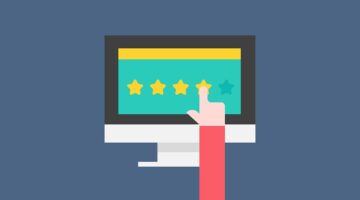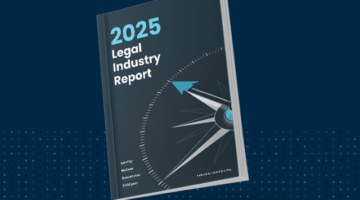 Last week, I presented Part I of my written interview with the Director of Penn Law’s Detkin IP Clinic (the “IPC”), Professor Cynthia Dahl. That column described the important work done at the Detkin Clinic by Penn Law’s students, along with a biographical sketch of Professor Dahl and her answer to the first of my three questions. What follows are Cynthia’s answers to my remaining two questions. As usual, I have added some brief commentary to Cynthia’s answers below, but have otherwise presented her answers as she provided them.
Last week, I presented Part I of my written interview with the Director of Penn Law’s Detkin IP Clinic (the “IPC”), Professor Cynthia Dahl. That column described the important work done at the Detkin Clinic by Penn Law’s students, along with a biographical sketch of Professor Dahl and her answer to the first of my three questions. What follows are Cynthia’s answers to my remaining two questions. As usual, I have added some brief commentary to Cynthia’s answers below, but have otherwise presented her answers as she provided them.
2) How has the clinic’s program changed in response to feedback from former and current participants?
CD: One innovation from last year that will be a staple of the IPC program going forward is offering “office hours” at the Philadelphia Free Library through their Business Resource and Innovation Center (BRIC). We have gotten great feedback from both students and community participants. Students like it because the fast-paced information exchange reminds them of their breadth of knowledge, they gain exposure to additional client types and different client questions, and it gives them more chances to practice critical communication skills. The community gets their questions answered for free, even if they are very early stage, and we can double the number of entities or individuals that we can serve through the clinic alone. I like the opportunity because it helps my students to understand that there is a vulnerable population hungry for IP advice, and that IP lawyers can and should offer valuable pro bono service to the community.

Private Practice Lawyers: Rater Your Work With In-House Counsel
Please share your thoughts in this brief and anonymous survey.
GK: I really like the idea of having the law students interact with the community-at-large as part of their clinic experience. As Cynthia notes, there are a lot of mutual benefits generated by such interactions. The “clients” get questions answered and access to justice via the law students’ advice. In my view, the law students benefit even more, by developing their ability to communicate effectively with regular people — on top of their developing IP muscle memory by answering real-world questions. Broad exposure to clients of all stripes is one of the hallmarks of a rewarding pro bono experience for lawyers and law students. The clinic’s experience at the public library suggests that there is a latent demand for IP services, which can be satisfied when lawyers dedicate their time toward pro bono activities. Something to consider for firms looking to help train their junior IP lawyers.
3) There has been a lot of expressed concern about the declining value of U.S. patents, and the possible repercussions to the innovation economy. How do you think the clinic’s participants have adjusted or responded to the alleged malaise in the patent system?
CD: Most of the IPC participants want to make a career out of IP law, so of course they might worry that recent court cases that act to limit rights of patent holders might impact their future work. But I think they have responded or have adjusted in a number of ways.
First, they understand that the reality is that inventors and companies will always file patents. It might just be a question of whether fewer patents will be granted and enforced. And if we as a country are shifting toward ensuring that patents are better researched and that we preference filing patents over technologies that are truly innovative, then capable IP lawyers will be needed more than ever. Lawyers can counsel clients over when and why it is appropriate to file for a patent and they can help clients to draft patent claims that will hold up in court and through post grant review.

2025 Legal Industry Report: Key Insights for Law Firm Growth & Efficiency
Is your firm keeping up with legal finance and tech trends? The 2025 Legal Industry Report shows how firms optimize cash flow, automate payments, and use AI. Download now for key insights.
Second, the IPC students know that a patent is often not the right answer for a client for a variety of reasons. As a result, they are spending time learning about other areas of IP law that can address a client’s holistic protection needs. Trade secrets will likely become an increasingly important tool to protect inventions going forward, particularly in the software and app realm. In addition, design patents, trade dress, and copyright law can also be very helpful to protect innovative product design.
Third, the IPC students realize that being an IP lawyer is about much more than filing applications to protect invention. A lot of counseling goes into building a total protection plan and maintaining value over intellectual property. As a result, the students are focusing on learning to draft licenses, develop data protection and privacy policies, and think about contractual provisions that can help to maintain secrecy and protect product value, especially when employees change firms or start new companies. So although it really remains to be seen whether patents are losing value, and whether any real or perceived loss in value will impact innovation, I think the IPC participants are keeping their eyes on the big picture. This is also important as AI starts to cut into or eliminate certain legal tasks. I think the same response — that lawyers are needed for their counseling skills and creativity and the holistic protection advice they can offer — similarly applies.
GK: I agree with Cynthia that one of the benefits of the challenges in the patent space has forced IP lawyers to develop more holistic approaches to client counseling. This is not the time for lazy thinking on the part of IP lawyers, even those who may have focused on one technology area due to their scientific background. I commend her and the students for taking a pragmatic approach towards developing their skills, by focusing the clinic experience on giving participants a well-rounded set of experiences that exposes them to different aspects of IP law. Put another way, the recognition that there are numerous tools in the IP toolbox, with a right time and task for each, is an invaluable skill for a law student to develop. It is a credit to the IPC that Penn Law’s students have that chance.
My thanks to Professor Dahl for the insights and cooperation, and I wish her continued success and fulfillment with her academic career. As I have said before, it is always a privilege to hear from an established IP personality, especially one with such a big role to play in developing the next generation of IP lawyers. I am always open to conducting interviews of this type with other IP thought leaders, so feel free to reach out if you have a compelling perspective to offer.
Please feel free to send comments or questions to me at [email protected] or via Twitter: @gkroub. Any topic suggestions or thoughts are most welcome.
Gaston Kroub lives in Brooklyn and is a founding partner of Kroub, Silbersher & Kolmykov PLLC, an intellectual property litigation boutique, and Markman Advisors LLC, a leading consultancy on patent issues for the investment community. Gaston’s practice focuses on intellectual property litigation and related counseling, with a strong focus on patent matters. You can reach him at [email protected] or follow him on Twitter: @gkroub.